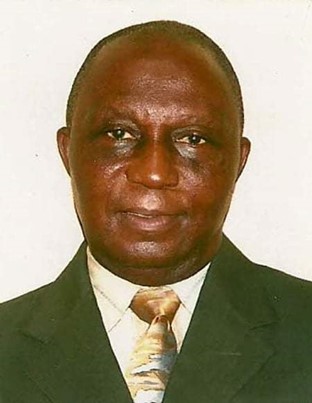ACC concludes two consultative meetings with MDAs and civil society monitors
The Anti-Corruption Commission has on Tuesday 3rd April 2012, concluded a two day meeting with Heads of Ministries Departments and Agencies (MDAs) and Civil Society Monitoring Groups (CSMG) on the implementation and Monitoring of the action plans contained in the Revised National Anti-Corruption Strategy 2011-2013. The meeting which started on Monday 2nd April took place at the Main Hall of the Anti-Corruption Commission Building, Off Maxwell Khobe Street in Kenema. (Photo: Members of the Civil Society Monitoring Action Group)
In her welcome and opening address, the Regional Manager of the Anti-Corruption Commission East, Miss Evelyn Walker, thanked all present for honouring the invitation. She said that the fight against corruption is a national fight that should not be left with the Commission alone. She maintained that as Heads and representatives of MDAs in the Eastern Region, it is important that they have an insight into the Revised National Anti-Corruption Strategy and the action plans for the various MDAs so that these action plans can be fully implemented. She said that her door is always open to heads of MDAs the civil society and members of the public as the Commission is in this part of the country to serve the people of this region. She wished all a fruitful deliberation.
The Director of NACS at the ACC, Mr. Nabilahi Musa Kamara Presenting the Revised National Anti-Corruption Strategy, gave the reasons and the need for the revision of the NACS. He said that if the present policy of zero tolerance of corruption should succeed, there should be a clearly defined road map in he fight against corruption which is why in 2007 a five year, (2008-20013) National Anti Corruption Strategy was developed and this has now been revised to reflect the prevailing issues of corruption mid way in its implementation. He outlined the objectives of the strategy which among other things is the improvement of service delivery both in quality and quantity and the promotion of a public service that can effectively prevent and confront corruption without compromising the peace, security and stability of the state and the provision of an enabling environment for citizens to curb corruption. He explained the methods used out by Dalan Development Consultants in carrying out the review of the strategy.
In the 2000 AC Act Mr. Kamara went on, the Responsibility for the implementation of the national anti-corruption strategy rested on Commissioner but that provision was amended in the 2008 Act which gives the Commissioner as head of the Commission the responsibility to coordinate the implementation of the national Anti-Corruption Strategy. He catalogued the strategic Principles of the strategy; Comprehensive approach to the process of reform, making laying emphasis on Zero tolerance, use of multiple measures, partnership and adherence to the rule of law.
On the principle of Zero tolerance to corruption, Mr. Kamara said that the Commission goes by what it really means. He gave examples of indictments the Commission has made stating that over the years, the Commission has indicted people from various walks of life ranging from Teachers, Clerks, Police constables, lawyers, Businessmen to Executive Directors and Ministers of government. He stressed that corruption at whatever level or scale impoverishes the majority and benefits only the individuals who engage in it.
Earlier in his declaration of the purpose of the meeting the NACS coordinating Officer Mr. David Bayoh gave a brief history of the NACS secretariat and the National Anti-Corruption strategy. Mr. David Bayoh, emphasized the important role MDAs and civil society monitors have in the successful implementation of the action plans as contained in the Revised Strategy. He informed participants that the nation and the Commission in particular rely on their support and cooperation for success in the fight against corruption.
The Regional Public Education Officer and the District Coordinator Messrs Peter Baio Kamara and Mohamed S. Blake used the opportunity to inform and educate heads of MDAs about the Asset Declaration Forms.
Question and answer sessions formed part of the meetings.
By Peter Baio Kamara, ACC Public Education Officer – Eastern Region
Stay with Sierra Express Media, for your trusted place in news!
© 2012, https:. All rights reserved.








